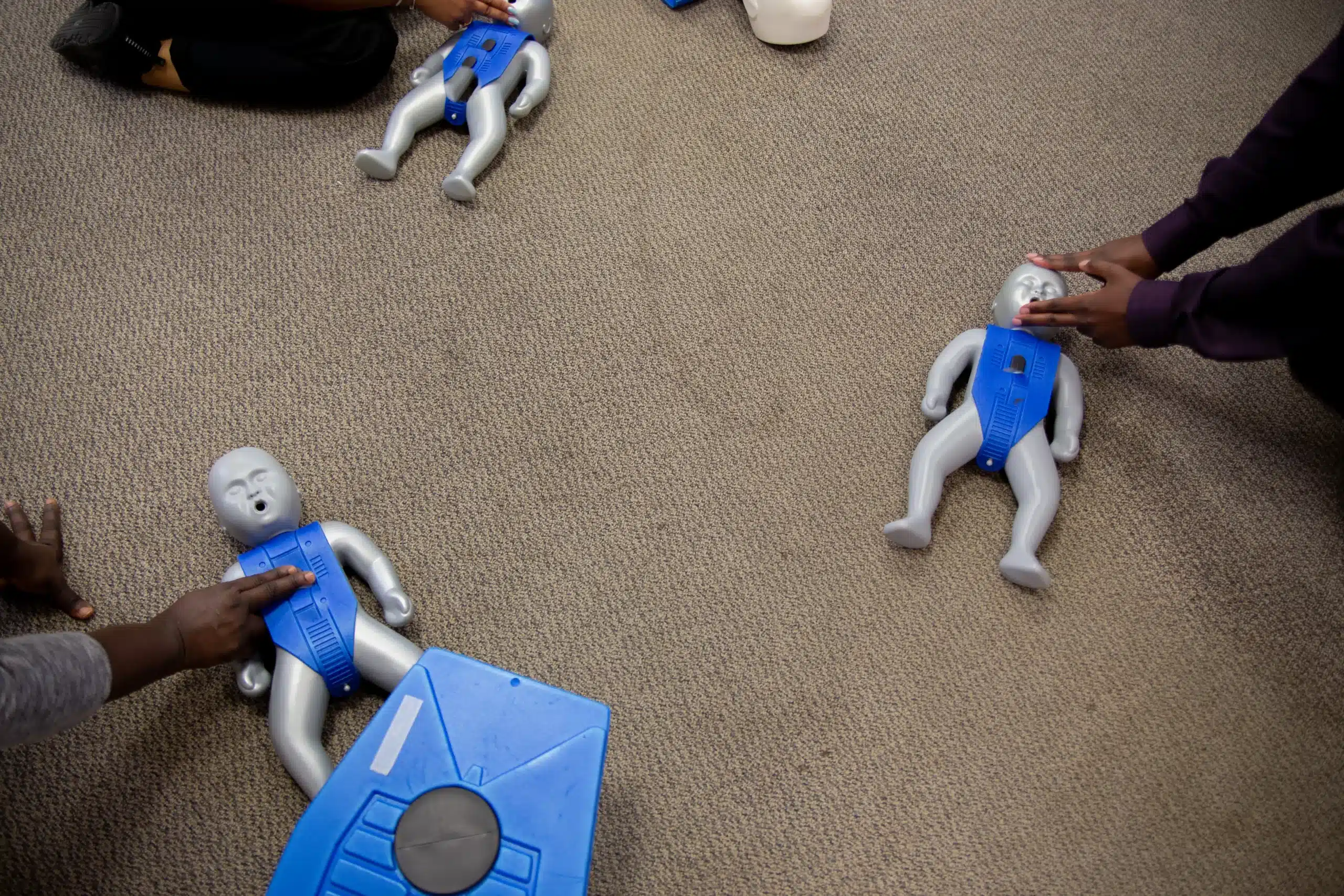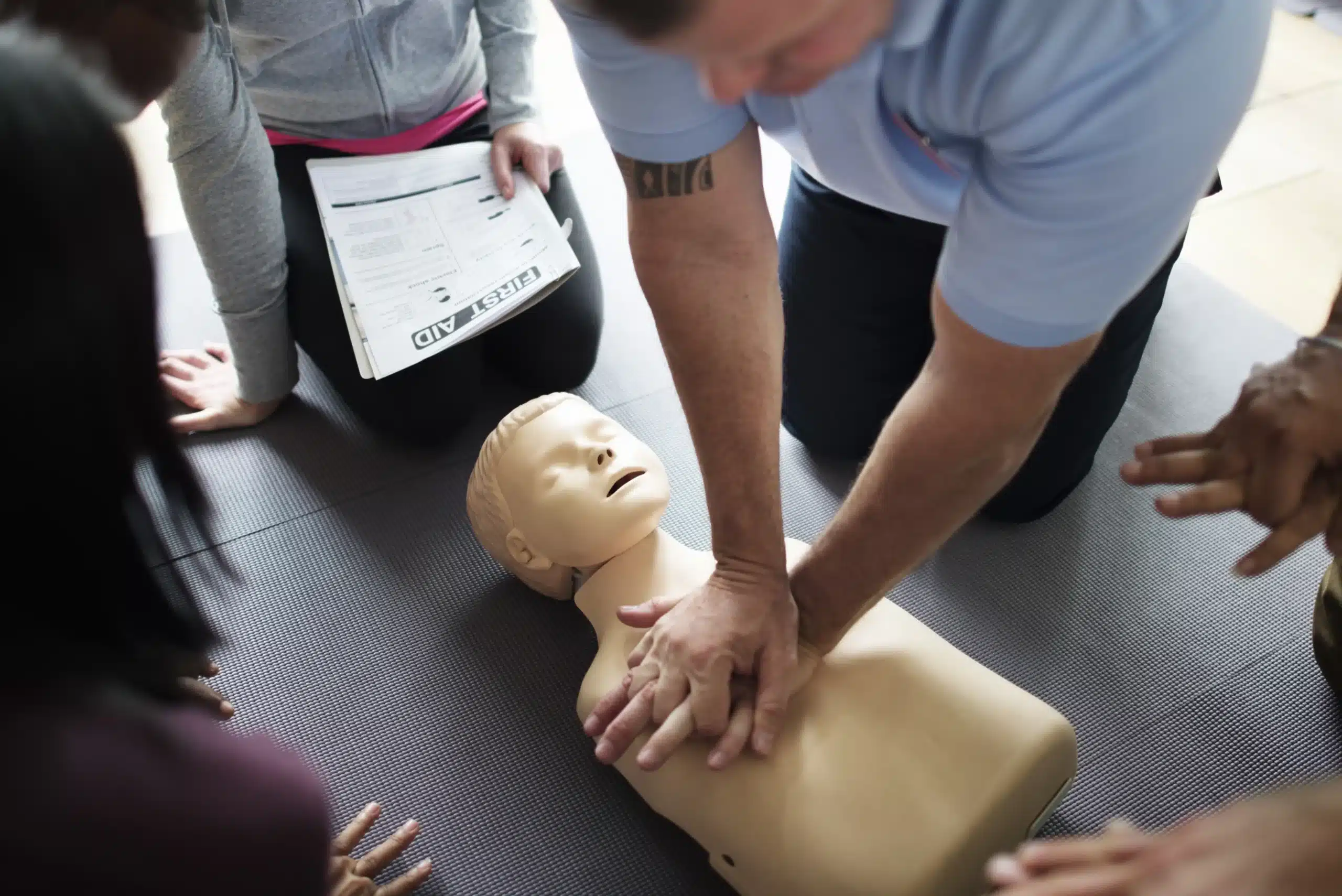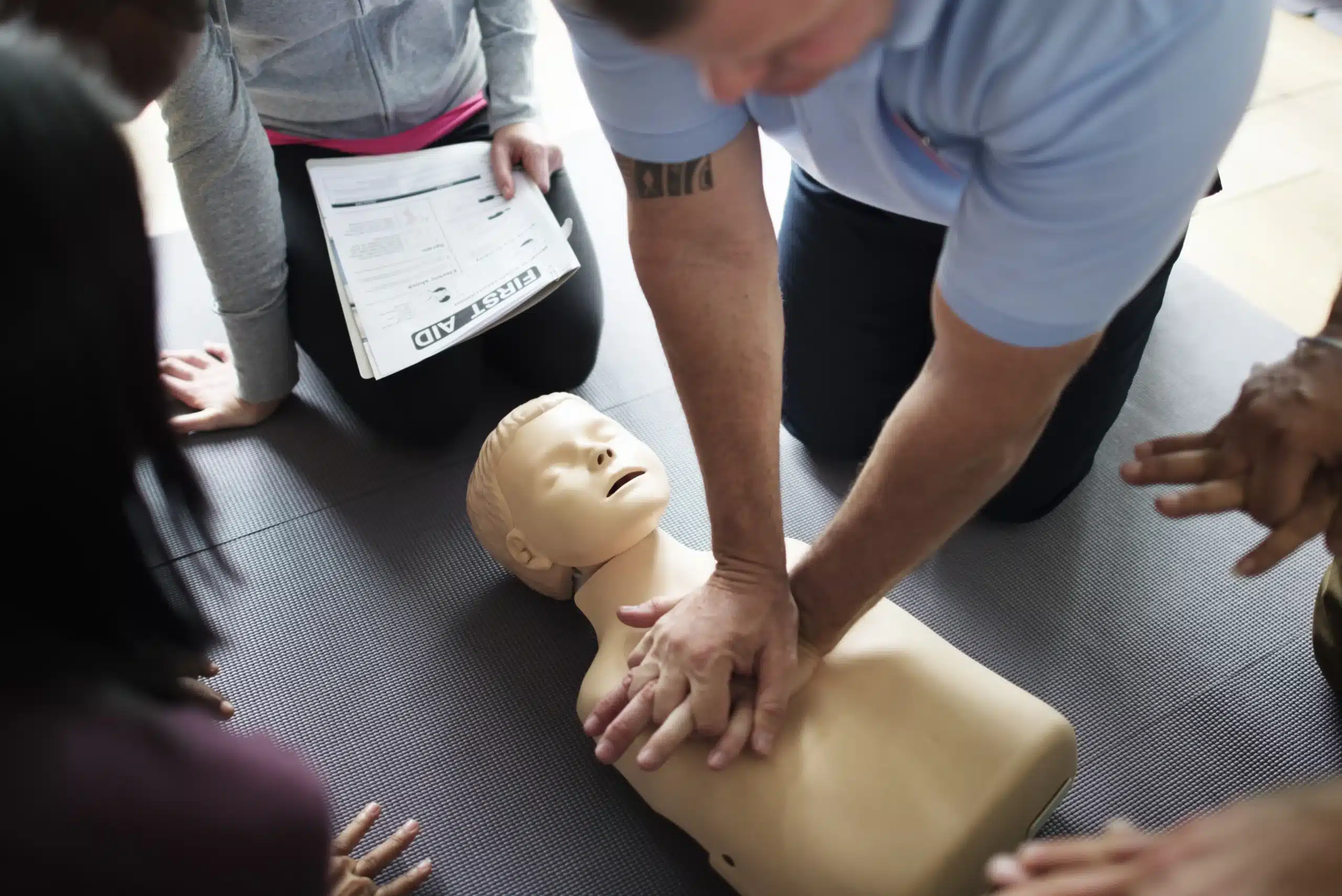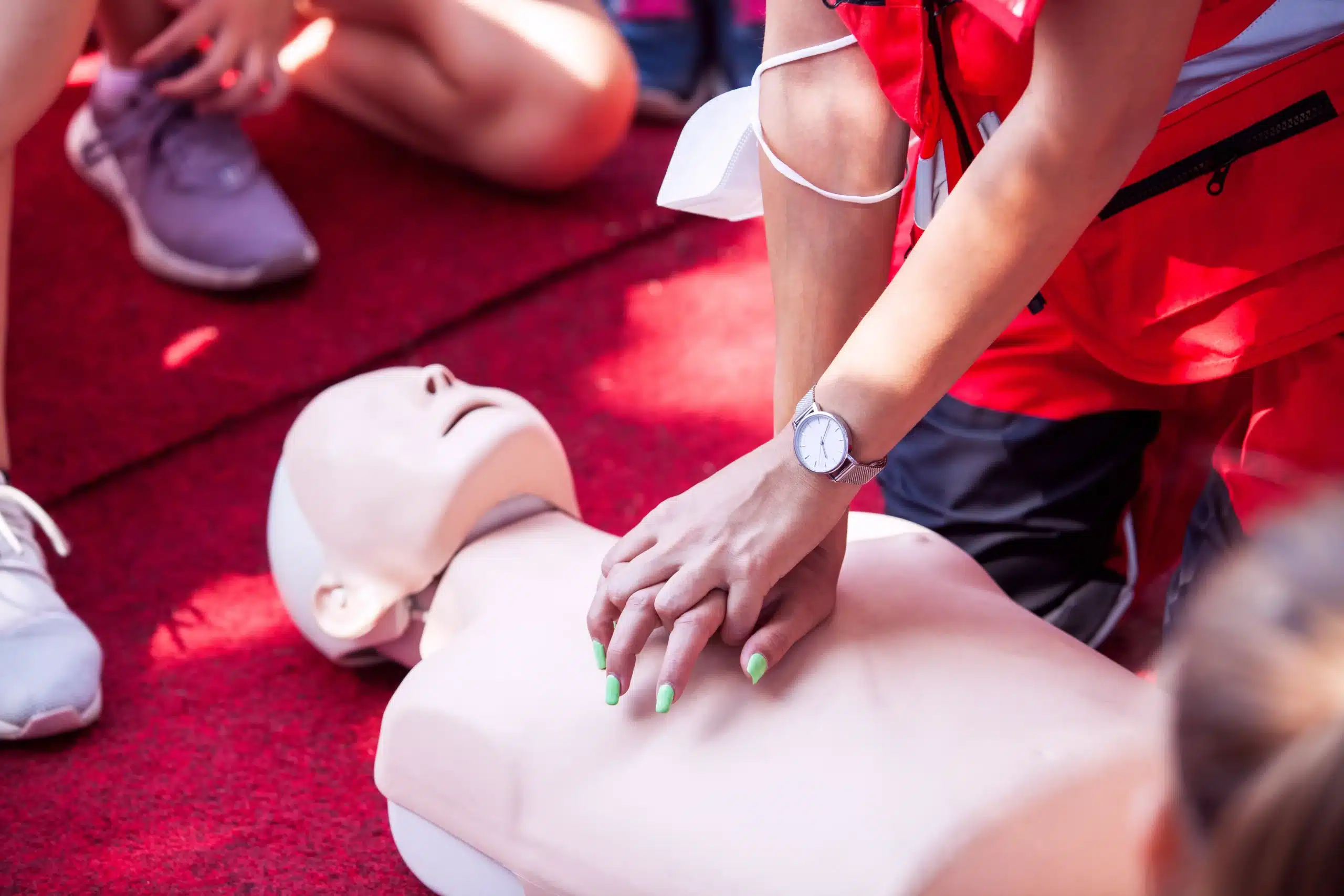Let’s face it, traditional ACLS courses can be time-consuming and inflexible. If you’re a healthcare provider in Menlo Park searching for a more convenient way to get certified or recertified, ACLS HeartCode offers a refreshing alternative. This blended learning program lets you complete the coursework online at your own pace, followed by a shorter, in-person skills session. This guide explores the ins and outs of ACLS HeartCode in Menlo Park, covering everything from the key features and benefits to how it compares with traditional ACLS training, where to find local courses, and tips for success.
Key Takeaways
- ACLS HeartCode blends online learning with hands-on skills: Study the core ACLS algorithms and protocols at your own pace online, then demonstrate your proficiency during a shorter in-person skills session.
- Find the right ACLS training program for your needs: Consider location, schedule, and cost when choosing a provider in Redwood City, Menlo Park, or Palo Alto. Look for options like Redwood City CPR Classes that offer group discounts and a low-price guarantee.
- Stay current with your ACLS certification: Remember that ACLS cards are valid for two years. Plan to recertify and explore continuing education options to maintain your skills and knowledge.
What is ACLS HeartCode?
ACLS HeartCode is the American Heart Association’s (AHA) blended learning program for Advanced Cardiovascular Life Support. It combines online coursework with a hands-on skills session, offering a flexible way to get your ACLS certification. This approach allows you to learn the core ACLS algorithms and protocols at your own speed before demonstrating your skills in person. Redwood City CPR Classes offers this innovative approach, conveniently serving healthcare providers in Redwood City, Palo Alto, and Menlo Park. For those seeking the most efficient path to certification, our RQI program provides an excellent alternative.
Key Features and Benefits
The online portion of ACLS HeartCode uses interactive modules, simulations, and real-world case studies to reinforce learning. You’ll work through various scenarios, making critical decisions and seeing the impact of your choices. This method helps you develop a deeper understanding of ACLS principles. Because it’s self-directed, you can fit the training around your busy schedule. The program is fully accredited by the AHA, ensuring you receive a recognized and respected certification.
How It Differs from Traditional ACLS
Traditional ACLS courses typically involve two full days of in-person instruction. HeartCode offers more flexibility, allowing you to complete the online portion at your convenience. While traditional courses rely heavily on lectures, HeartCode uses adaptive learning technology. This means the program adjusts to your learning pace and provides personalized feedback. Once you finish the online modules, you’ll schedule a short, in-person skills session to demonstrate your proficiency to an instructor. This blended approach combines online learning with the essential hands-on practice needed for real-world scenarios. We also offer group discounts for team training, making it a cost-effective solution for organizations.
Find ACLS HeartCode Training in Menlo Park
Finding the right ACLS HeartCode training can feel overwhelming with so many options. This section clarifies what to look for and highlights convenient resources in and around Menlo Park.
Redwood City CPR Classes
Redwood City CPR Classes offers a range of American Heart Association courses, including BLS, ACLS, PALS, and NRP. As a licensed training provider, they serve Redwood City and surrounding areas like Menlo Park and Palo Alto. Explore their ACLS course options and see if their schedule works for you. They also offer group discounts, a helpful perk for healthcare teams.
Safety Training Seminars
Safety Training Seminars is another option for AHA-certified courses, including ACLS. They cover a wide service area, including Menlo Park, and offer a low-price guarantee. Visit their website for course schedules and details.
Palo Alto CPR Classes
If Palo Alto is more convenient, check out Palo Alto CPR Classes. Their flexible ACLS HeartCode training lets you complete the online portion at your own pace, which can be ideal for busy professionals. You can find more information about their ACLS HeartCode program on their blog.
Choosing the Right Provider
When selecting an ACLS HeartCode training center, consider factors like location, schedule, cost, and reputation. Reading reviews and comparing programs can help you find the best fit. Contact training centers directly with any questions—a good provider will be happy to discuss your learning goals and help you choose the right course.
The ACLS HeartCode Training Process
ACLS HeartCode blends online learning with a hands-on skills session, offering flexibility for busy professionals. Let’s break down each step:
Online Coursework
HeartCode ACLS starts with interactive online modules you complete at your own pace. This self-directed learning allows you to fit the coursework around your schedule, whether you prefer short study sessions or longer blocks of time. The online portion covers essential ACLS algorithms and critical concepts, using simulations and case studies to reinforce your learning. This blended learning format empowers you to absorb the material conveniently.
In-Person Skills Assessment
After finishing the online modules, you’ll move on to the in-person skills assessment. This crucial step allows you to demonstrate your proficiency in essential ACLS interventions. You’ll work with an instructor to practice essential skills like BLS, primary and secondary assessments, and other core ACLS interventions. This hands-on component is crucial for mastering the systematic evaluation of adult patients.
Time Commitment and Flexibility
One of the biggest advantages of ACLS HeartCode is its flexibility. The online portion’s duration depends on your prior experience and how quickly you work through the modules. The in-person skills session typically takes five to six hours, according to the American Heart Association’s ACLS Course Options page. This blended approach allows you to complete the coursework at your convenience and then schedule your skills session separately.
Cost and Enrollment
Getting your ACLS certification is an investment in your career and the safety of your patients. Understanding the costs and enrollment process can make planning easier. Here’s what you need to know:
Pricing
ACLS HeartCode certification typically follows a two-tiered pricing structure. Initial certification usually costs around $275, while recertification is generally around $175. American Medical Resource Institute offers a good example of this standard pricing. Remember that prices can vary slightly between providers, so check with your chosen training center for their exact pricing.
Discounts and Promotions
Many training centers offer competitive pricing and discounts, especially for groups. If you’re registering with colleagues or friends, ask about group discounts. Redwood City CPR Classes offers group discounts and a low-price guarantee, ensuring you get the best value. Compare prices and look for promotions from different providers in your area.
Registration Steps
Registering for ACLS HeartCode training is usually straightforward. Most providers, like Palo Alto CPR Classes, allow online registration through their website. You’ll then complete the online portion of the course at your own pace. After finishing the online modules, you’ll schedule an in-person skills assessment to demonstrate your proficiency.
Who Should Take ACLS HeartCode?
Healthcare Professionals and Medical Students
ACLS HeartCode is designed for healthcare professionals who manage cardiopulmonary arrest and other cardiovascular emergencies. This includes nurses, paramedics, respiratory therapists, and medical students preparing for careers in healthcare. The American Heart Association emphasizes the relevance of ACLS training for a wide range of healthcare professionals involved in managing cardiac emergencies. It’s a crucial toolkit for anyone on the front lines of cardiovascular care, covering everything from ECG interpretation to advanced airway management. For medical students, ACLS HeartCode provides a solid foundation for future clinical practice.
Other Eligible Participants
Beyond healthcare providers, ACLS HeartCode also benefits anyone who might face emergency situations, including professionals in fields like dentistry and allied health. The course provides essential, real-world applicable skills, making it valuable for anyone who might encounter a cardiac arrest. While not always a requirement, ACLS certification demonstrates a commitment to patient safety and preparedness, and can be a valuable asset for career advancement. It signals to employers that you’re equipped to handle critical situations.
Benefits for Busy Professionals
Juggling work, family, and other commitments makes finding time for professional development tough. ACLS HeartCode recognizes this challenge and offers a learning experience designed for busy professionals like you. Let’s explore how this format can help you achieve your certification goals without sacrificing your valuable time.
Flexibility and Convenience
HeartCode ACLS offers a blended learning format that combines online modules with in-person skills practice. This approach gives you the flexibility to complete the online portion at your own speed, whenever and wherever it suits you best. No more rigid schedules or fixed classroom times. Instead, you can work through the material during your commute, lunch break, or even late at night. This blended learning structure empowers you to integrate the training seamlessly into your existing routine. Once you’ve finished the online modules, you’ll schedule a hands-on skills session at your convenience.
Comprehensive Learning
While the flexible format offers convenience, it doesn’t compromise the comprehensiveness of the training. The HeartCode ACLS course covers essential topics, including algorithms, pharmacology, airway management, and team dynamics. You’ll gain the knowledge and skills to confidently manage cardiovascular emergencies, from initial assessment through post-resuscitation care. This thorough curriculum ensures you’re well-prepared to handle real-world situations. The program uses current AHA guidelines, ensuring you learn the latest resuscitation techniques and best practices.
Adaptive Learning Technology
HeartCode ACLS uses adaptive learning technology to personalize your online learning experience. The program adjusts to your existing knowledge and skill level, focusing on areas where you need the most practice. This targeted approach streamlines the learning process, allowing you to complete the online modules efficiently. Whether you’re a seasoned healthcare provider or refreshing your skills, the adaptive format ensures you get the most relevant training possible.
Address Common Concerns
It’s normal to have a few questions about the ACLS HeartCode certification process, especially if you’re new to blended learning. Let’s tackle some common concerns:
Course Difficulty
Many people worry about the difficulty of the ACLS HeartCode course. It’s true that ACLS covers complex material, but the HeartCode format breaks it down into manageable modules. You’ll work through interactive lessons, case studies, and simulations at your own pace, building your knowledge step by step. If you find yourself struggling with a particular concept, you can review the material as often as needed before moving on.
Balancing Online Learning and Hands-On Practice
One of the biggest advantages of ACLS HeartCode is its flexibility. The blended learning format lets you complete the online portion at your own pace, fitting the training around your busy schedule. This means you can study during your commute, on your lunch break, or even late at night. The online modules prepare you for the in-person skills assessment, where you’ll demonstrate your knowledge in a practical setting. This combination of online learning and hands-on practice ensures you have both the theoretical knowledge and the practical skills to provide effective care in real-life emergencies.
Scheduling Your Skills Assessment
Once you’ve completed the online coursework, you’ll need to schedule your in-person skills assessment. This typically takes about five to six hours and involves demonstrating your skills in a simulated environment. CPR Heart offers more details about this process. You’ll work with an instructor who will provide feedback and guidance, ensuring you’re fully prepared to handle real-world emergencies. After successfully completing the skills assessment and the course survey, you’ll receive your ACLS HeartCode certification card. Contact your chosen training provider, like Redwood City CPR Classes, to schedule your skills assessment and complete your certification.
Maintain Your ACLS Certification
Keeping your ACLS certification current is essential for any healthcare provider. Knowing the renewal process and exploring continuing education will ensure you’re always prepared to deliver the best possible care.
Renewal Requirements and Process
ACLS certification cards are valid for two years. To renew, you’ll need to complete a recertification course before your current card expires. Recertification usually involves reviewing key concepts and skills, followed by a practical skills test. The fee is typically less than initial certification. Many providers, like Redwood City CPR Classes, offer refresher courses to help you prepare.
Continuing Education Options
Beyond simply renewing, consider expanding your knowledge with continuing education. The ACLS HeartCode program offers a blended learning experience, combining online coursework with hands-on practice. This flexible format lets you learn at your own pace and then demonstrate your skills in person. The HeartCode program covers essential topics like algorithms, pharmacology, and airway management, all updated to reflect the latest guidelines. It’s a valuable way to stay at the forefront of advanced cardiovascular life support.
Prepare for ACLS HeartCode Success
Getting ready for ACLS HeartCode certification involves a blend of online learning and a hands-on skills session. Here’s how to prepare for each component:
Study Materials and Resources
The HeartCode ACLS course uses the most current American Heart Association (AHA) guidelines, so you’ll learn the latest resuscitation techniques and best practices for managing cardiovascular emergencies. The online portion allows for a personalized learning path, adapting to your performance in real time. Since the online modules are self-paced, you can fit the training around your own schedule.
Tips for Online Learning
Make the most of the online learning experience by setting aside dedicated study time. Treat it like an important appointment and minimize distractions. Work through the modules methodically, taking notes and reviewing key concepts. Don’t rush the material—take your time to absorb the information. The online portion prepares you for the hands-on skills assessment, so a solid understanding is essential. After completing the online modules, you should be able to apply the BLS, Primary, and Secondary Assessments sequence for a systematic evaluation of adult patients, as outlined in the AHA HeartCode ACLS FAQ.
Strategies for the Skills Assessment
The in-person skills session typically takes five to six hours. During this time, you’ll demonstrate the skills you learned online, ensuring you meet the AHA guidelines. Practice effective communication—it’s crucial for successful resuscitation efforts and will be assessed during the skills check. Review your online materials before the hands-on session to refresh your knowledge and ensure you’re well-prepared. Consider the skills session a valuable opportunity to practice and refine your techniques in a supportive environment.
Related Articles
- BLS HeartCode Redwood City: A Complete Guide
- Advanced Cardiac Life Support (ACLS) in Menlo Park – Redwood City CPR Classes
- Advanced Cardiac Life Support (ACLS) in Palo Alto CA
- AHA ACLS Classes in Redwood City, CA – Redwood City CPR Classes
- ACLS Renewal Palo Alto: Your Complete Guide – Redwood City CPR Classes
Frequently Asked Questions
What exactly is involved in the HeartCode ACLS blended learning format? HeartCode ACLS combines online coursework with a hands-on skills session. You’ll work through interactive modules, simulations, and case studies online at your own pace. After completing the online portion, you’ll schedule a shorter in-person session to demonstrate your skills to a certified instructor.
How long does it take to complete the ACLS HeartCode training? The online portion is self-paced, so the time it takes depends on your learning style and how much time you can dedicate to studying. The in-person skills session typically takes five to six hours.
How much does ACLS HeartCode certification cost? The cost varies depending on the training center and whether you’re getting initially certified or recertifying. Initial certification generally costs more than recertification. Check with specific providers, like Redwood City CPR Classes, for their pricing. Don’t forget to ask about potential group discounts!
How is ACLS HeartCode different from a traditional ACLS course? Traditional ACLS courses usually involve two full days of in-person instruction. HeartCode offers more flexibility with its online component, allowing you to study when and where it’s convenient for you. The blended learning approach combines the benefits of online learning with the essential hands-on practice.
Where can I find ACLS HeartCode training near me? Several training centers offer ACLS HeartCode courses. Redwood City CPR Classes serves Redwood City, Palo Alto, and Menlo Park. When choosing a provider, consider factors like location, schedule, cost, and reviews. Contact the training centers directly to discuss your needs and find the best fit.






